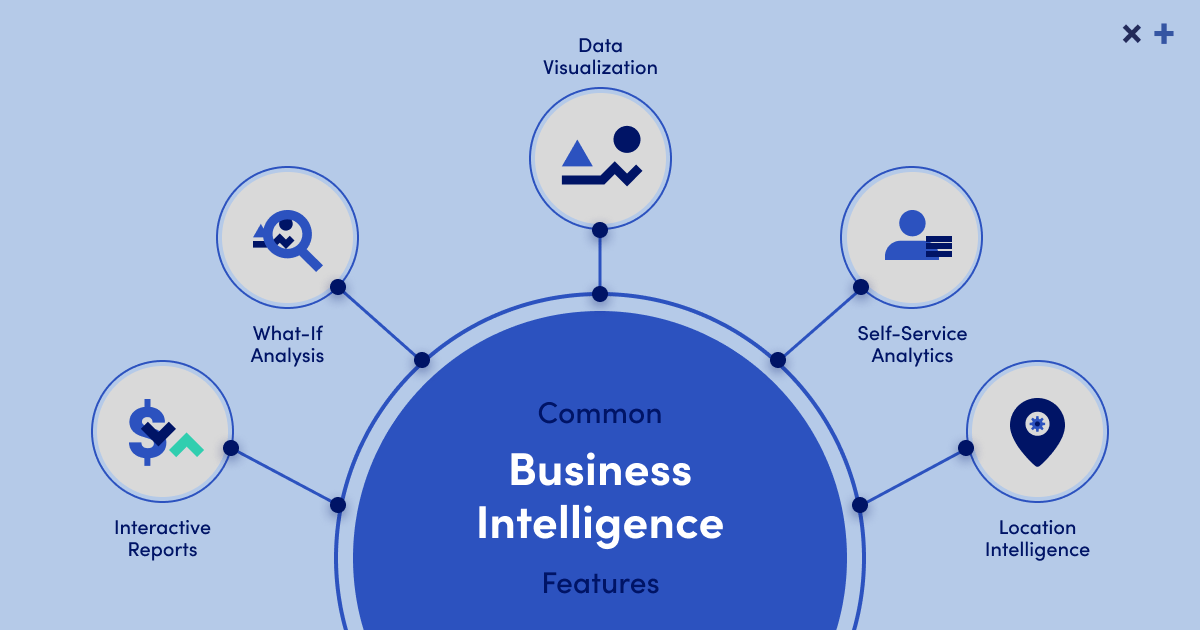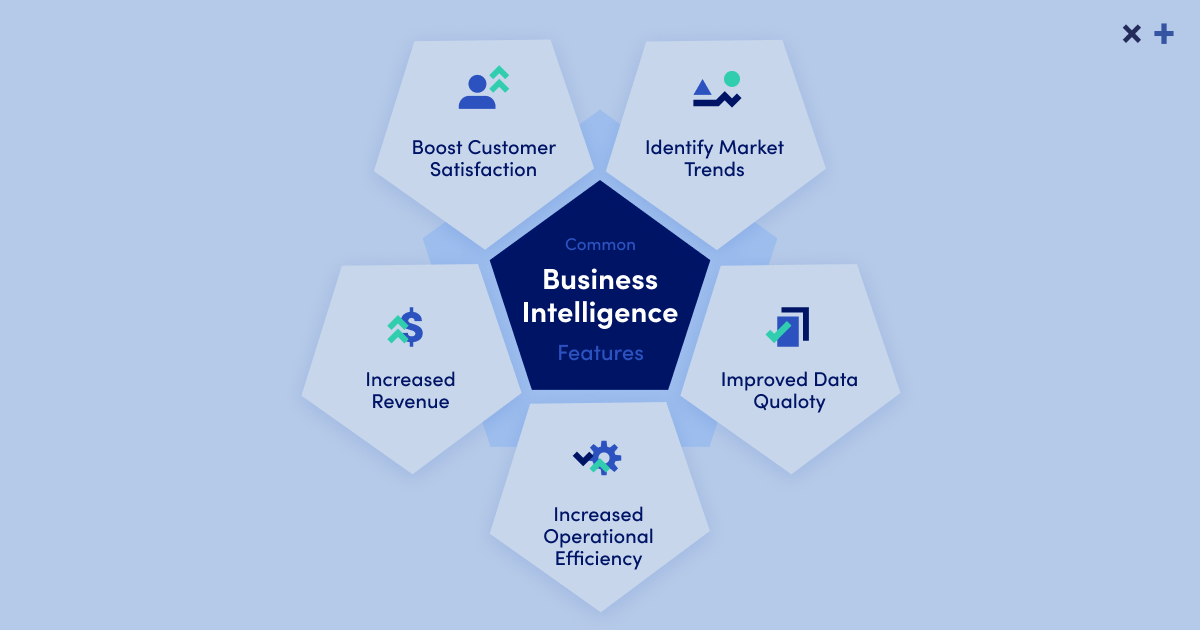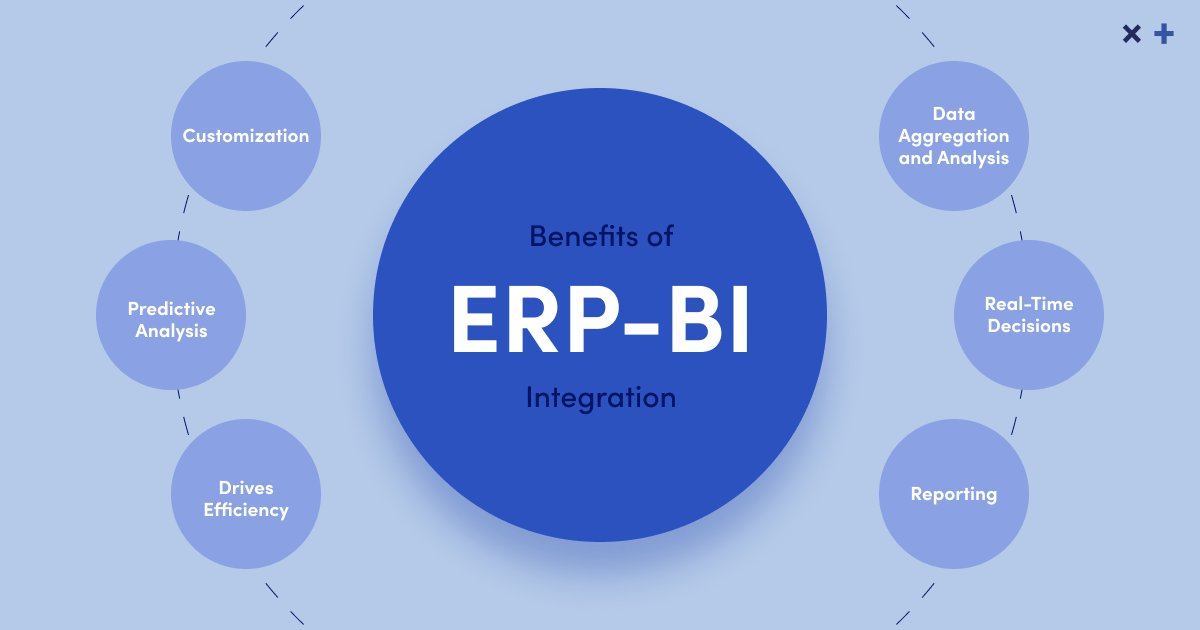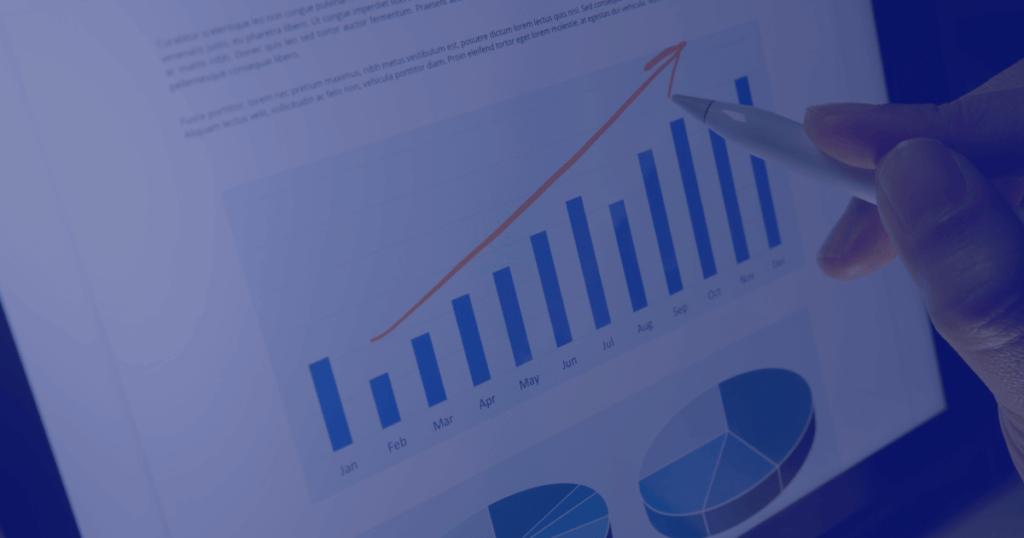What is Business Intelligence (BI)?
Business Intelligence (BI) indicates the process of turning raw data into insights. It offers tools and capabilities to analyze users’ business data points and identify certain trends and pattern. This helps decision makers make more informed decisions regarding their company’s operations.
There is no limitation as to where BI can be deployed and used. It is helpful for any aspect of the business, such as marketing, sales, finance, retail, manufacturing, customer service, etc. Its full potential can be realized when it is not only applied to one department but rather used across the whole organization.
Why?
BI is often incorrectly defined as a tool for enhancing decision-making process. However, it is more than that. It also allows business performance monitoring and measurement. The goal of BI is to help organizations make better decision – that is true. However, apart from that, it also aims to improve its performance and this means increasing the profitability and gaining the competitive edge over businesses in the same niche or industry.
Business Intelligence as a process can be broken down into four stages:
- Data gathering
- Data consolidation and/ or data cleanse (here, data is analyzed)
- Creation of the analysis (dashboard, KPIs, reporting)
- Sharing reports and dashboards with stakeholders and senior management across the business.

Primary benefits of Business Intelligence (BI)
Business Intelligence tools are able to analyze any data. It can relate to:
- Sales
- Stock and inventory
- Production
- Customer orders
- Invoicing
Through analyzing the raw data, companies can understand much matter what is going on in their business and minimize the risks to operations. Using the data, they can, for example, improve their operations, change the working schedules, allocate resources differently, decide who to hire and fire, improve their customer service, etc.
BI thanks to data analysis allows for increasing its quality. BI tools collect data from many, often incoherent sources, merge it and convert it into quality data for business analysts.
Thanks to more accurate data, companies are better equipped to identify new market trends. They can spot more opportunities for building a solid strategy for their operations. Users have access to external market data analysis which empowers them to detect any risks and identify possibilities to use for business advantage. And this, in turn, leads to increased profitability.

ERP vs BI – differences
Level of analytics
For business analysts, Business Intelligence tools allow us to obtain a strategic-level analytics. How so? They are able to get an overview of the organizations’ performance and so make specific strategic business decisions. The data that they have obtained from different sources lets the users run an in-depth analysis for further insights and knowledge. The BI features provide a bird’s eye view which enhances the business processes and operations.
When it comes to ERP, this software provides an operational-level analytics. Such systems store transactional and operational data. As such, ERP provides an accurate business perspective when it comes to all operations. However, contrary to Business Intelligence, ERP does not allow for an overall analysis and perspective of enterprise performance.
OLAP vs. OLTP
Business Intelligence has been designed as an Online Analytical Processing (OLAP) system. This means that it provides the analysts with comprehensive analytical capabilities which include advanced reporting and visualization capabilities, dashboard management and scorecards. BI also executes automated data cleansing and allows users to view data in various formats and coming from different formats on a single screen.
On the other hand, ERP systems are classified as an Online Transaction Processing (OLTP) system. It records transaction as and when they occur. This can include online banking, shopping, order entry, etc. The transactions are referred to as economic or financial transactions. They are recorded and secured so that the data can be retrieved anytime – either for accounting or reporting purposes.
Competencies
Business Intelligence leans towards forecasting and forward planning and moves away from historical reporting. That is why through letting the organization be more future oriented, it offers agility, delivered by means of predictive analytics capabilities. This enables organizations to make more informed, strategic decisions while taking into consideration future market conditions.
Contrary to BI, ERP solutions are all about enhancing and delivering business process efficiencies in various forms. This may relate to IT cost reduction, improving customer service, internal communications, enhancing inventory management or providing real-time data access. A proper ERP implementation is highly likely to increase the overall business performance.
The role of Business Intelligence (BI) in ERP software
As data analysis has always been at the very heart of through decision-making for businesses, the integration of ERP and BI seems ideal. Due to the incredible amounts of data that is processed daily by companies, they are no longer able to manually organize, store and analyze all of their business information. Not to mention drawing any conclusions from it. BI helps ERP users consolidate millions of data points and convert them into actionable insights – whether it relates to accounting, invoicing, sales, production, warehouse management, etc.
More and more often, ERP systems get integrated with Business Intelligence in the cloud. It is because such integration simply takes away the burden of maintaining (and also investing in) the on-premises infrastructure. This is a very simple, yet innovative way of integrating data between systems.
Why is Business Intelligence needed for ERP systems? Let’s take a quick peek at specific aspects of data management where BI is most helpful:
- Data warehousing: every day, ERP systems register and circulate massive amounts of data. With no way to process and classify it, you might end up with an enormous data repository. Proactive data warehousing, which also allows for data analysis, comes under Business Intelligence.
- Legacy data: data that is left over from previous software or system is an important aspect of the organization’s assets. Although for many companies historic data is of critical importance for conducting their business, they often have difficulties with deciphering this data, consolidating it and drawing conclusions from the historic information on their operation. Such a thorough analysis (facilitated with predictive capabilities) is possible if you integrate ERP systems with BI tools.
Business Intelligence in ERP systems allows the analysis of human resources productivity, employee satisfaction with work, gauges the organization’s performance and helps take corrective measures if necessary. All these actions help in increasing the efficiency and the agility of an organization.
- Proper data analysis: with no appropriate Business Intelligence tools in place, most of the time businesses rely on their gut instinct to make strategic decisions. Not basing them on historical data and its analysis has dire consequences for the future of such companies in the long term. BI helps extract accurate and real-time information from time and analyze trends and patterns which allows an informed way of making decisions and conducting business instead of relying on guesswork.
The BI and ERP integration is very popular with businesses who are looking ahead. Such companies, using BI tools, can spot trends and patterns and use this data proactively. They are able to anticipate any shifts In the market and so they can adjust their plans and budgets respectively.
Benefits of integration of Business Intelligence in ERP
Organizations rely on gigantic amounts of data. It is both structured and unstructured, though. In order to analyze information at scale, they should be able to organize it and be able to store and retrieve it easily. The integration of ERP systems and BI is exactly what lets users consolidate the business data. They can also put it into actionable and straightforward insights to gain the competitive edge.
There are a lot of companies where ERP systems are integrated with BI tools. For example, manufacturing companies may use BI data analysis in order to keep track of their sales and control the inventory levels. BI reports and data also show exactly if stock needs replenishing or there is enough stock on hands to meet the customer demand. Companies might also use BI and ERP integration to identify areas which are performing well and the ones that need process improvement. In retail, BI and ERP integration is very helpful in forecasting. It helps retailers to predict demand over a given period more accurately simply by combining historical data and real-time market conditions.

The integration of Business Intelligence in ERP also provides predictive modeling that enables organization to anticipate the outcomes of their decisions and operations. Nowadays, the ability to spot trends and patterns within business data is a sought-after competency which also makes it possible to rectify certain processes and, going forward, to anticipate the market fluctuations.
Now, let’s take a look at major benefits of integration of Business Intelligence in ERP:
- Data aggregation and analysis: with vast amounts of raw data produced by ERP systems, there is always a need to consolidate this information. Thanks to integration of BI with ERP systems, organizations can unlock full potential of data analysis, in-depth insights and use it across the whole company.
- Predictive analysis: with ERP systems providing insights into historical data and BI enabling predictive analysis and modeling, the organizations can benefit from this integration by getting a complete picture of the business operations and its potential when it comes to future outcomes
- Higher efficiency: data analysis and aggregations by means of Business Intelligence tools help companies utilize their ERP systems better. They can pinpoint areas that require improvement, that bring more or less profit and adjust the efficiency of their operations accordingly. Also, integration of BI with ERP systems helps employees be more productive with the daily tasks. They have access to the most accurate information in real time which prevent any delays and helps them manage the processes faster.
- Reporting: thanks to Business Intelligence capabilities, the users are able to include large datasets for speedy analysis which, in turn, accelerate the report making process. And more intuitive and straightforward dashboards makes the reporting more accessible even for users with no technical expertise.
- Real-time decision making: instead of relying merely on historical data and running retrospective reports, BI allows for leveraging real-time data to fuel better and faster decision-making. By delivering data and business analysis in real time (which also incorporates future trends and present patterns), companies can foster their growth.
- Customization: with BI integrated with ERP systems, you are not limited by any data analysis restrictions or requirements. Such a system allows each authorized user (team member) to design and generate their own reports and data dashboard that they might need to meet, e.g. their KPIs. Therefore, you can easily include individual stakeholders’ analysis requirements and incorporate them into BI.
Apart from that Business Intelligence in ERP measures the following Key Performance Indicators (KPIs) that are commonly used to gauge the strategic and operational performance (the list is not exhaustive):
- Sales growth
- Profitability
- Productivity
- Customer satisfaction
- Employee satisfaction

Business Intelligence in ERP – the future is here?
Both technologies – BI and ERP – will continue to be working hand in hand. It seems that with the business going digital, decision makers need to depend more on real-time insights and use analytics that includes predictive capabilities. This will play a significant role in determining company strategy.
ERP and BI have also shown that they improve teamwork to a large extent. By eliminating data silos through ERP systems, thanks to BI everyone can achieve their shared objectives more easily.
Massive quantities of data will not diminish. BI will continue to be utilized as it is the most effective way to organize and analyze large chunks of data – and make them accessible to every stakeholder involved.
We are also witnessing that the BI software market is rapidly expanding. The BI tools are becoming more and more collaborative to support cooperation. The integration of third-party system also increases, which makes it easier to process data and respond to the insights.
And it is mainly increased data insight that the companies are after. This is the main motive behind adopting ERP for business. The next (recommended) step is to combine the power of ERP with BI. Through this integration, you can make choices and decisions that empower your organization and drive productivity across the board.











